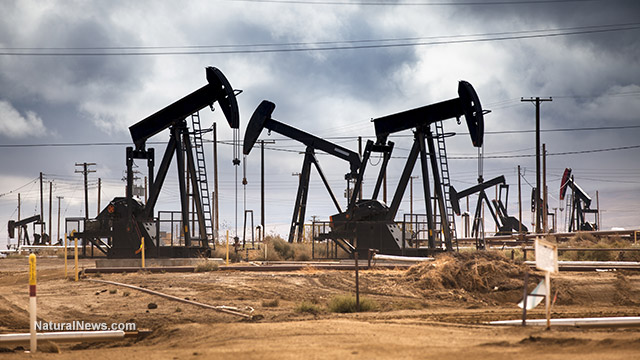
Companies like Exxon Mobil are trying to bring back to life the abandoned oil wells in Magnolia, Arkansas.
Just recently, Magnolia Mayor Parnell Vann inspected three of these wells. He noted the squat blue spire of valves, bolts and pressure gauges attached to one of the wells – a telltale sign that someone is trying to revive it.
But companies in the area are no longer looking for oil. They are instead searching for lithium, a metal that is increasingly prized around the world as an essential ingredient in batteries of electric vehicles (EVs).
Exxon, a new player in the hunt for U.S. lithium, is planning to build one of the world's largest lithium processing facilities not far from Magnolia. It will have a capacity to produce 75,000 to 100,000 metric tons of lithium a year, according to people familiar with the plan.
One analyst noted that it would equate to about 15 percent of all finished lithium produced globally last year.
In May, the Wall Street Journal reported that Exxon purchased 120,000 gross acres in the area for over $100 million. A consultant for the seller had estimated the prospect could have the equivalent of four million tons of lithium carbonate equivalent – enough to power 50 million EVs.
To push the project forward, Exxon will have to profitably scale up the technology used to siphon lithium from brine. The attraction is known as the Smackover formation, a geologic trend that runs from Texas to Florida and is rich with saltwater brine. That brine also contains small amounts of lithium, and the companies are hoping to scale up technologies to extract it.
Tetra Technologies is another company planning to extract the chemical bromine from brine in the region. It is studying the feasibility of building a plant that would add thousands of tons of lithium extraction capacity, and recently drilled its second test well near Magnolia.
Vancouver-based Standard Lithium, backed by Koch Industries, is studying the feasibility of building the first commercial U.S. lithium extraction facility, with a capacity of 6,000 metric tons a year. It wants to begin construction in early 2024.
It has also proposed building a 30,000-ton plant just west of Magnolia, where the concentration of lithium is about twice as high as its current location. Construction could potentially begin in the next few years.
Put together, these projects would require around 6,000 jobs and north of 1,600 trucks by 2028. An influx of workers and trucks could give Magnolia and nearby counties an economic shot in the arm after years of decline.
But the prospect is also concerning.
Processes required to extract lithium are highly toxic
Vann said the town of 12,000 is facing a shortage of new houses, and many of the region's limited roads, water and sewage systems are unprepared. "No one is listening right now," he said. "But when it blows up, it's going to be too late."
The processes required to extract lithium are highly toxic. The issue rarely gets attention because devices that use batteries do not emit visible pollution during use. (Related: Lithium production setback will hinder EV growth; locals revolt over lithium mining impacts on water supplies.)
In May 2016, dead fish were found in the waters of the Liqi River, where a toxic chemical leaked from the Ganzizhou Rongda Lithium mine. Cow and yak carcasses were also found floating downstream, dead from drinking contaminated water.
The mining and processing of just one ton of lithium consumes an astounding eight million liters, or 500,000 gallons, of water.
In order to extract lithium, miners have to drill holes in salt flats, oftentimes in otherwise pristine areas of the world that are rich in minerals. The holes dug by miners pump out salty, mineral-rich brine that then undergoes all sorts of processing. Again, large amounts of water is necessary to do this.
The removal of all this water ends up destroying water tables needed for drinking water and irrigation.
Visit GreenTyranny.news for more stories about lithium.
Watch this video showing lithium batteries spontaneously combusting indoors.
This video is from the TestimonyOfTheTwoWitnesses.com channel on Brighteon.com.
More related stories:
Lithium batteries used in EVs and other "green" technology are anything but clean.
Lithium supply not large enough to not meet ambitious global EV deadlines, mining CEO warns.
Sources include:
InstituteForEnergyResearch.org
Please contact us for more information.




















